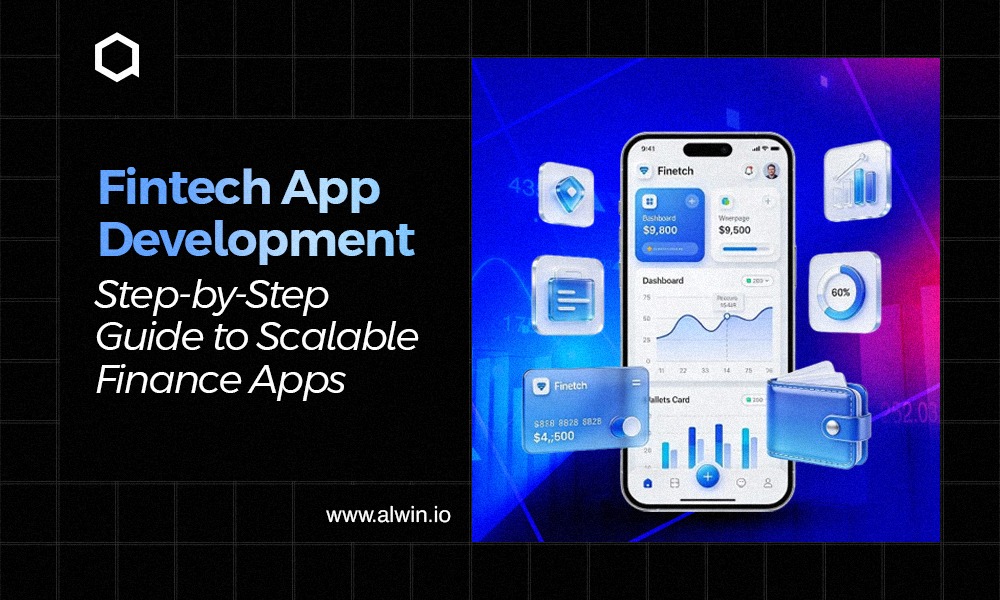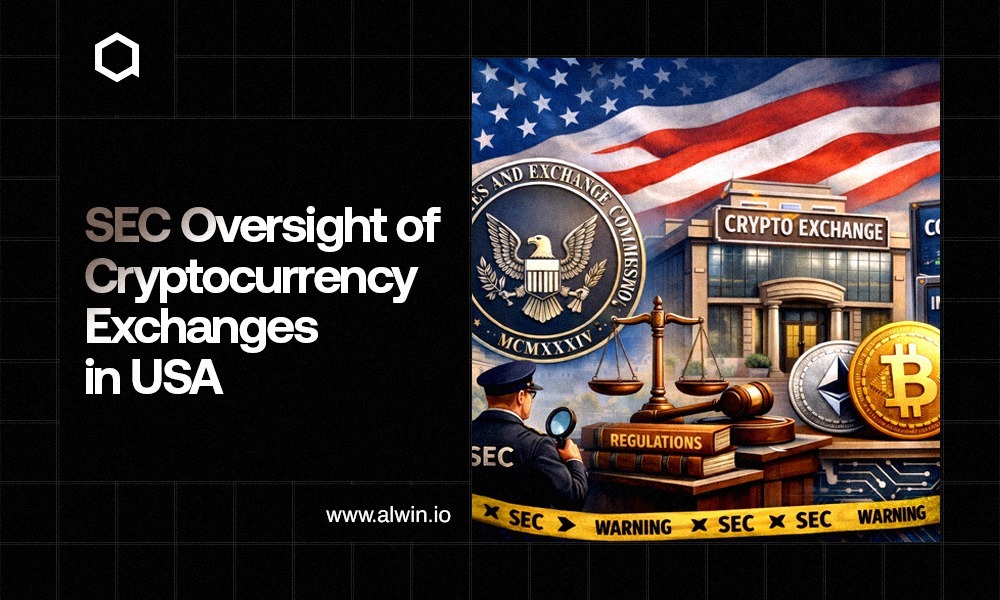Decentralized Exchanges (DEXs) have become a cornerstone in the web3 ecosystem, surpassing traditional exchanges with their innovative approach to trading digital assets.
Unlike centralized exchanges like Binance or Coinbase, which operate as intermediaries, DEXs function without central authorities. This decentralized nature offers users enhanced control over their assets, improved privacy, and better security.
The impact of DEXs is evident in their substantial trading volumes, with daily transactions exceeding $1.3 billion in October 2023 and over 209 million users engaging in financial activities on platforms like Uniswap, the leading DEX.
Unlike centralized exchanges where user funds are held and controlled by the exchange, DEXs utilize smart contracts to facilitate direct token swaps between users, who connect their crypto wallets for seamless transactions.
However, while DEXs offer significant advantages, they also pose challenges such as limited liquidity for less popular tokens. Despite these challenges, their contribution to the web3 ecosystem is undeniable, offering a reliable and secure alternative for cryptocurrency trading.
This has driven many startups to explore and launch their own decentralized exchanges, recognizing the potential for better user control, security, and privacy.
In this blog, we will discuss everything you need to know about developing a decentralized exchange, guiding you through each critical step.
Decentralized Exchange Development Steps
1. Define Business Goals
Clearly outline what you aim to achieve with your DEX.
Are you targeting professional traders, casual users, or a niche market?
Defining your audience helps tailor your platform’s features and marketing strategies effectively.
Conduct thorough research to understand your competitors and identify market gaps.
Analyze successful DEXs to learn what works well and what doesn’t.
This knowledge will help you position your platform uniquely.
2. Ensure Compliance with Legal Regulations
Familiarize yourself with the regulatory environment for cryptocurrency and DEXs in your target markets.
Regulations can vary significantly between countries and regions.
Obtain all required licenses and ensure your platform complies with local laws.
Engaging legal experts in blockchain and cryptocurrency law can help navigate this complex area and avoid potential legal issues.
3. Blockchain Network Selection
Assess various blockchain networks based on factors like transaction speed, fees, security, and scalability.
Popular options include Ethereum, Binance Smart Chain, and others.
For example, Ethereum is highly secure and has a large user base but suffers from high gas fees. Binance Smart Chain offers lower fees and faster transactions but may be less decentralized.
4. Choose the Order Matching Mechanism
Decide between traditional order book systems, which are familiar to many traders, and AMM models, which provide liquidity through smart contracts.
Each has its advantages and drawbacks in terms of liquidity, complexity, and user experience.
5. Develop Smart Contracts
Smart contracts are the backbone of any DEX, automating transactions and ensuring trustless trading. They must be secure and efficient.
Ensure your smart contracts handle trades, liquidity pools, and staking securely. They should also be audited by security professionals to minimize vulnerabilities.
6. UI/UX Design
A seamless and intuitive user interface is crucial for attracting and retaining users. Your DEX should be easy to navigate, even for those new to cryptocurrency trading.
Prioritize a smooth, responsive, and engaging user experience. Conduct usability testing to identify and fix any issues before launch.
7. Build the DEX
Develop the front end with user-friendly features and a robust back end that handles high traffic and complex transactions efficiently.
Ensure seamless integration of smart contracts with your DEX’s architecture. This includes proper handling of transaction data and interaction with the blockchain network.
8. Maintain Strong Security Measures
Implement multi-factor authentication, encryption, and other security measures to protect user data and assets. Conduct frequent security audits to identify and address vulnerabilities.
Collaborate with external security experts to ensure comprehensive protection.
9. Wallet Integration
Ensure compatibility with popular crypto wallets like MetaMask, Trust Wallet, and Ledger. This makes it easier for users to connect and trade.
Implement secure transaction protocols to protect users' assets during trades. This includes measures to prevent phishing and other common attacks.
10. Testing & Debugging
Rigorously test all aspects of your DEX, including functionality, security, and performance. Use both automated testing tools and manual testing procedures.
Identify and resolve any bugs or issues before the public launch. A bug-free platform enhances user trust and satisfaction.
11. Provide Liquidity
Develop strategies to ensure sufficient liquidity on your platform. This could include liquidity mining programs, partnerships, or incentives for liquidity providers.
Offer rewards and incentives to users who provide liquidity. This helps maintain a healthy trading environment and attracts more users.
12. Deploy the DEX
Before deployment, ensure all systems are fully operational, and all regulatory requirements are met.
Execute the deployment process carefully, ensuring a smooth transition from development to live operation. Monitor the platform closely post-launch to address any emerging issues promptly.
13. User Support and Community Engagement
Establish a robust support system to assist users with any issues they may encounter. This includes FAQs, helpdesks, and responsive customer service.
Actively engage with your user community through social media, forums, and other channels. Building a strong community can drive user retention and attract new users.
Business Benefits of Launching a Decentralized Exchange
1. Untapped Market Potential
The decentralized exchange market is still in its growth phase, offering immense potential for new entrants.
By launching a DEX, you can tap into a vast and growing user base looking for alternatives to centralized exchanges & Capturing Early Adopters of blockchain technology and cryptocurrencies are always on the lookout for innovative platforms.
By providing a reliable and feature-rich DEX, you can attract these users and establish a loyal customer base.
2. Fostering Customer Empowerment
DEXs empower users by allowing them to retain control over their assets. This is a significant advantage over centralized exchanges, where users must trust third parties with their funds.
Providing users with greater control and transparency fosters trust and loyalty. Users are more likely to stick with a platform that respects their autonomy and prioritizes their security.
3. Elimination of Intermediaries
By removing intermediaries, DEXs can significantly reduce transaction costs. This benefit is passed on to users, making your platform more attractive compared to traditional exchanges.
Eliminating intermediaries simplifies the trading process, leading to faster and more efficient transactions. This efficiency can enhance the user experience and improve overall satisfaction.
4. Gaining the Attention of Money-Minded Traders
DEXs offer lower fees and faster transactions, which are attractive to high-volume traders. By catering to this segment, you can increase your platform's trading volume and revenue.
Implementing features like liquidity mining and staking can further attract traders looking to maximize their returns. These incentives can drive user engagement and platform activity.
5. Global Client Base
DEXs operate on a global scale, allowing users from around the world to trade without geographical restrictions. This opens up a vast market for your platform.
6. Future-Proof Business
As the blockchain and cryptocurrency landscape evolves, DEXs are well-positioned to adapt to new trends and technologies. This adaptability ensures your business remains relevant in a rapidly changing environment.
DEXs built on robust blockchain networks can scale efficiently to accommodate growing user bases and transaction volumes, ensuring sustainable growth.
7. Flawless Transactions
Smart contracts automate transactions, reducing the risk of human error and ensuring flawless execution. This automation enhances reliability and user trust.
Transactions on DEXs are settled instantly, providing a seamless trading experience. This immediacy is a significant advantage over traditional exchanges, which may have delays.
8. Community
Engaging with the community through social media, forums, and events helps build a loyal user base. A strong community can drive word-of-mouth promotion and user retention.
Community feedback can be invaluable in improving your platform. By involving users in the development process, you can ensure your DEX meets their needs and expectations.
9. Better Profits
DEXs can generate revenue through transaction fees, listing fees for new tokens, and other value-added services. These diverse revenue streams contribute to better profitability.
With no need for physical infrastructure or intermediary services, operating costs for DEXs are typically lower than those for centralized exchanges, enhancing profit margins.
10. Reliable and Transparent Trading Environment
Transactions on DEXs are trustless, meaning they don’t require trust in a central authority. This transparency builds user confidence and promotes a reliable trading environment.
All transactions are recorded on the blockchain, providing an immutable and transparent ledger. This transparency deters fraudulent activities and enhances platform integrity.
11. Censorship Resistance
DEXs operate on decentralized networks, making them resistant to censorship and government interference. This resilience is appealing to users in regions with restrictive regulations.
Users can access DEXs regardless of their location, ensuring uninterrupted trading opportunities even in adverse regulatory environments.
12. Reduced Counterparty Risk
Since DEXs don’t hold user funds, the risk of counterparty failure is significantly reduced. Users can trade directly from their wallets, minimizing exposure to exchange insolvency or fraud.
Users retain control over their private keys, ensuring their funds are secure and not subject to exchange hacks or mismanagement.
13. Enhanced Security
The decentralized nature of DEXs makes them less vulnerable to hacks compared to centralized exchanges. Distributed networks provide robust security against attacks.
Regular audits of smart contracts can identify and mitigate vulnerabilities, ensuring the security of the platform.
14. Increased Privacy
DEXs often allow for anonymous trading, protecting user identities. This increased privacy is a significant advantage for users concerned about their personal data.
Many DEXs operate without KYC (Know Your Customer) requirements, offering a more private and user-friendly experience.
15. Faster Trading
With no intermediaries, transactions on DEXs are processed instantly, providing a seamless and efficient trading experience.
Advanced blockchain networks can handle high transaction volumes, ensuring that trading remains fast and efficient even during peak times.
Key Features to Integrate while Developing a DEX
When developing a decentralized exchange (DEX), incorporating robust features is crucial to enhancing user experience and operational efficiency:
User Features
- New User Registration: Streamlined registration processes to onboard users quickly and securely.
- Digital Wallet: Integration with popular crypto wallets like MetaMask or Trust Wallet for seamless fund management.
- User Interface (UI): Intuitive and responsive UI design that facilitates easy navigation and trading operations.
- Payment Gateway Integration: Support for various payment methods to facilitate fiat-to-crypto transactions.
- Trading Analytics: Real-time analytics tools to empower users with trading insights and market trends.
- Security Features: Multi-layered security protocols including two-factor authentication (2FA) and encryption to safeguard user assets.
- Multilingual Support: Accessibility in multiple languages to cater to a global user base.
- Liquidity Options: Strategies to ensure sufficient liquidity through incentivization mechanisms like liquidity pools.
- Operating Mechanism: Options for users to choose between order book-based trading or Automated Market Maker (AMM) models.
- Multi Cryptocurrency Support: Capability to trade a wide range of cryptocurrencies to cater to diverse user preferences.
- Notifications: Real-time alerts and notifications for price changes, transactions, and account activities.
- Support Tickets: Responsive customer support system with ticketing features to address user queries and issues promptly.
Admin Features
- Secure Dashboard: A centralized dashboard with advanced security features for monitoring and managing platform operations.
- Adding Features & Widgets: Flexibility to add new features, widgets, and integrations to enhance platform functionality.
- Transaction History: Comprehensive logs and reports of user transactions for transparency and audit purposes.
- Adjust Trading Fee: Ability to customize and adjust trading fees based on market conditions and platform performance.
- List New Tokens/Cryptocurrencies: Streamlined processes to list new tokens or cryptocurrencies on the exchange.
- Respond to Tickets: Efficient ticket management system for admins to handle user inquiries and support requests effectively.
How Much Does It Cost to Develop a Decentralized Exchange?
To provide a rough budget estimate for developing a decentralized exchange (DEX) with a total budget of $45,000, including all essential components, here's a breakdown:
| Component |
Estimated Cost |
| Market Research and Idea Validation |
$3,000 |
| UI/UX Design and Features |
$8,000 |
| Back-end Development |
$10,000 |
| Front-end Development |
$8,000 |
| QA Testing |
$5,000 |
| Project Management |
$5,000 |
| Post-Launch Technical Support |
$6,000 |
| Total Cost Estimate |
$45,000 |
Cost Breakdown Explanation:
Market Research and Idea Validation: Conducting thorough market research and validating the DEX concept to ensure market viability and user demand.
UI/UX Design and Features: Designing a user-friendly interface with essential features like registration, trading dashboard, and security settings.
Back-end Development: Developing the core functionalities of the DEX, including order matching, smart contract integration, and blockchain network interaction.
Front-end Development: Implementing the designed UI/UX into a functional frontend application, ensuring responsiveness and seamless user experience.
QA Testing: Comprehensive testing of the DEX to identify and resolve bugs, ensure security, and optimize performance.
Project Management: Overseeing the entire development process, coordinating tasks, managing resources, and ensuring timelines and budgets are adhered to.
Post Launch Technical Support: Providing ongoing technical support post-launch, addressing user issues, and updates, and maintaining platform stability.
Factors Affecting the Cost of Developing a Decentralized Exchange
Developing a decentralized exchange (DEX) involves several factors that can influence the overall cost and project execution:
1. Project Complexity:
- Simple DEX: Basic functionalities with standard features.
- Complex DEX: Advanced features like margin trading, advanced order types, or integration with multiple blockchains.
2. Timeline and Tech Stack Preferences:
- Aggressive Timeline: Shorter deadlines may require more resources and potentially increase costs.
- Tech Stack: Choosing blockchain platforms (Ethereum, Binance Smart Chain, etc.) and development frameworks can impact costs based on developer expertise and integration complexities.
3. Security Measures:
- Basic Security: Implementing standard security protocols and audits.
- High Security: Enhanced security features like advanced encryption, multi-signature wallets, and regular security audits to prevent hacks.
4. Features and Functionality:
- Basic Features: Limited functionalities such as simple trading and token swaps.
- Advanced Features: Including features like staking, liquidity pools, yield farming, and decentralized finance (DeFi) integrations.
5. Development Methodology:
- Creating from Scratch: Custom development tailored to specific project requirements.
- White Label Software: Using pre-built DEX solutions can reduce development time and costs but may limit customization.
Each of these factors interacts to determine the overall cost and complexity of developing a DEX. Tailoring these elements according to project goals and budget constraints is crucial for a successful DEX development process.
Conclusion
Developing a decentralized exchange (DEX) represents a significant opportunity in the evolving landscape of cryptocurrency trading. As outlined, the journey to creating a successful DEX involves meticulous planning, strategic decision-making, and investment in key areas such as technology, security, and user experience.
From defining business goals and ensuring regulatory compliance to integrating advanced features and managing ongoing support, every step plays a critical role in shaping the DEX's success. Factors such as project complexity, chosen timeline, security measures, and development methodology all influence the overall cost and feasibility of the endeavor.
By understanding these factors and their implications, entrepreneurs and developers can navigate the complexities of DEX development effectively.
Whether building from scratch or leveraging existing solutions, prioritizing user trust, operational efficiency, and innovation remains paramount.
Ultimately, a well-executed DEX not only meets market demands but also contributes to the broader adoption and advancement of decentralized finance (DeFi) ecosystems worldwide. By partnering with a decentralized exchange development company, you can turn your vision into reality and be part of the exciting future of decentralized trading.
Ready To Launch Your Decentralized Exchange?
Partner with Wealwin Technologies, leveraging our extensive experience and proven solutions. Build your DEX to meet and exceed market standards. Contact us now!



